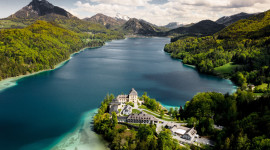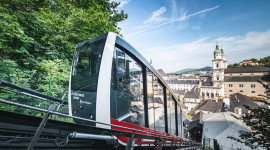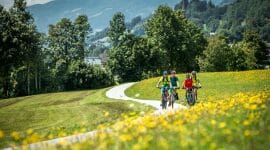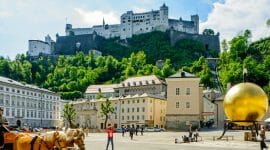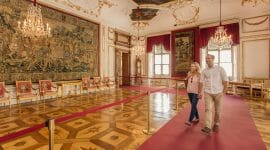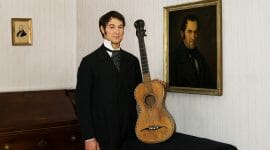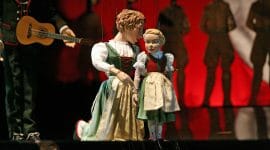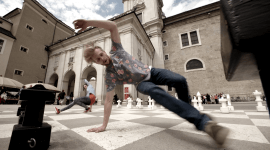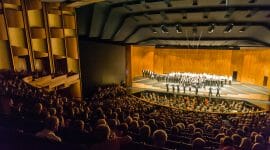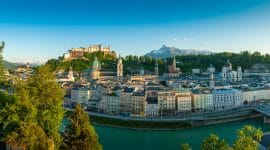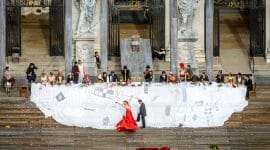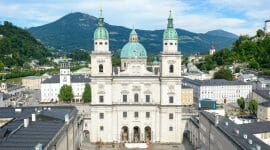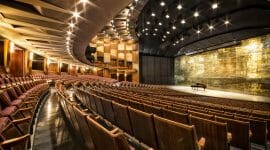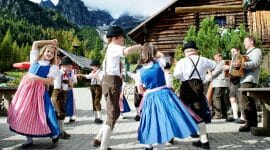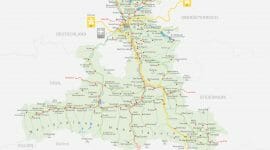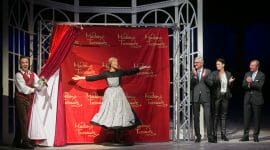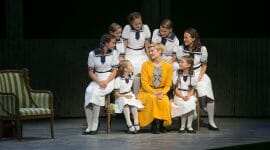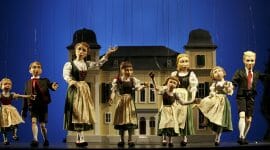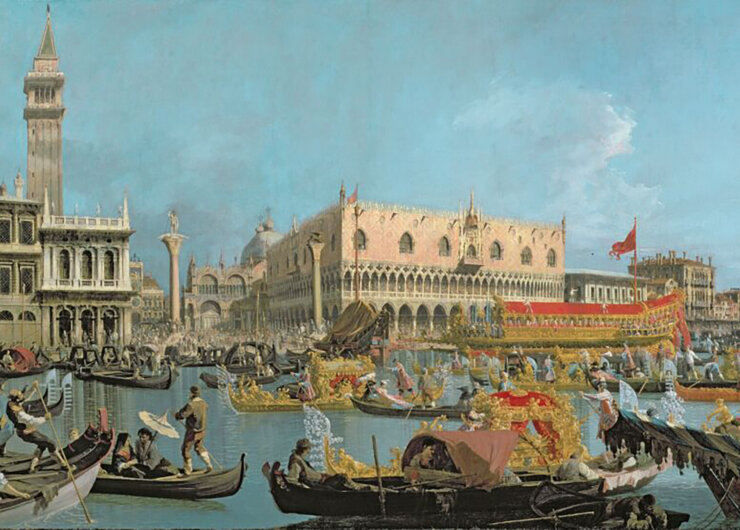
Venice will be the focal point of the 2025 Salzburg Whitsun Festival. Under the title Sounds of the Serenissima, artistic director Cecilia Bartoli promises music spanning five centuries, all centered around the lagoon city. The festival’s centerpiece will be a staged pasticcio titled Hotel Metamorphosis, based on the operas of Antonio Vivaldi. Giuseppe Verdi’s La Traviata will be performed in concert form.
After exploring Rome and Seville in recent years, Bartoli continues her musical “city journey” at the Salzburg Whitsun Festival from June 6 to 9, 2025, this time with Venice. In Hotel Metamorphosis, music by the Venetian-born Vivaldi is interwoven with Ovid’s Metamorphoses. The two-act pasticcio is conceived and directed by Barrie Kosky. As every year, Bartoli herself will take the stage, appearing as both Arachne and Eurydice. Other soloists include Varduhi Abrahamyan, Lea Desandre, Philippe Jaroussky, and Angela Winkler as Orpheus. Gianluca Capuano will conduct Les Musiciens du Prince – Monaco and Il Canto di Orfeo.
With these ensembles, Capuano will also present a Vespers for the Virgin Mary, focusing on the music of Claudio Monteverdi, the former maestro di cappella of St. Mark’s Basilica in Venice. This concert will also feature the choral work Venezianischer Morgen (Venetian Morning) by Bruno Mantovani, which will have its world premiere in spring 2025.
La Traviata premiered at Venice’s Teatro La Fenice, and in Salzburg, the opera will be performed in a concert version on Whitsun Sunday. The principal roles will be sung by Nadine Sierra, Piotr Beczała, and Luca Salsi.
Ballet will also return next year: Thomas Mann’s novella Death in Venice serves as the basis for a choreography by John Neumeier, created for his Hamburg Ballet and now revived in Salzburg. The program also includes a chamber music matinée featuring Wagner’s Wesendonck Lieder and …sofferte onde serene… by Luigi Nono, who was also born in Venice. A second pasticcio will present pieces from operas by Gioachino Rossini that had their world premieres in the lagoon city.
Here, you will find all the information on the Salzburg Whitsun Festival.
The Whitsun Festival and its changing artistic direction
The Festival has been shaped by great personalities ever since it was founded. It was clear from the onset that it should be an independent institution with a programme very different to the festivals in Summer and at Easter:
- Karajan’s era: At first, the Festival was intended to be an extension of the Easter Festival. Founded six years previously, it drew large crowds and Karajan and the Berlin Philharmonic Orchestra created a first-class programme.
- From 1982: Subsequently, more and more orchestras and conductors from around the world were invited. The focus had been on works by Anton Bruckner until Karajan died in 1989. After this devastating experience, the Salzburg Whitsun Festival started to lack direction.
- New start in 1997: After Baden-Baden played host to the Whitsun concerts in 1997, it prompted a new start in Salzburg in the following year. Completely different to the other two, it was now dedicated to the Baroque composers.
- Riccardo Muti: The Festival reinvented itself in 2007. Muti, from Naples, wanted to put the spotlight on the composers of his home country. So, until 2011 the programme included Italian composers of the 18th





